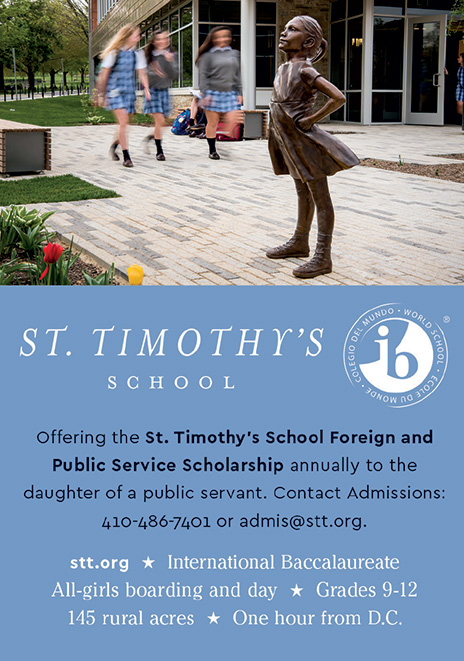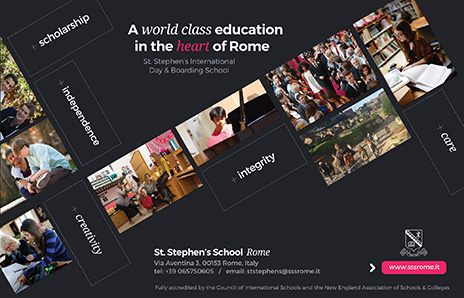College Admissions and COVID-19: An Evolving Landscape
Here are some of the issues and adjustments in the college admissions process to keep an eye on.
BY REBECCA GRAPPO
To Keep Up on the Changes…
This shortlist of websites can help you stay current on college admissions procedures and requirements. No one site tells the entire story, but they are pieces of what is now a constantly changing puzzle.
- ACT – act.org
- NACAC – nacacnet.org
- Common APP – commonapp.org
- Coalition for College – coalitionforcollegeaccess.org
- University of CA APP – admission.universityofcalifornia.edu/apply-now.html
- FAFSA – studentaid.gov/h/apply-for-aid/fafsa
- CSS Profile – cssprofile.collegeboard.org
- FinAid – finaid.org
- Comprehensive – rnginternational.com/college
—Becky Grappo
No international crisis has thrown both students and universities into as much turmoil and uncertainty as the current COVID-19 situation. But as in any crisis situation, institutions and the people who work in them must adapt and explore new ways of approaching challenges.
Colleges are adapting daily to our new shared reality in their approach to the key questions around college applications, admissions and enrollment. To paraphrase one college admissions official, the key words are “flexibility” and “nimbleness”: Students want to get into universities, and universities need students.
So what changes can we expect in the coming weeks and months? Based on what we know now, here are some of the topics creating the most buzz (as of this writing in April).
Standardized testing. Many highly selective colleges, including the institutions that make up the University of California system, are announcing that they will be “test-optional” for next year, and the list is growing daily. But what does that really mean?
It could mean a variety of things. Be ready to see terms such as temporarily test-optional (we’ll do this for those applying in 2021, but do not plan to extend it); piloting test-optional (we’ll try this for two or three years, see how it goes, and then reevaluate whether or not we need standardized tests to make good decisions); test-optional (we do not require them now and have no plans to ever re-institute them); and test-flexible (you can submit the ACT or SAT, APs or SAT Subject tests, IB predicted results or other combination of widely recognized testing—but you don’t have to submit any).
Here is another term students should learn: test-aware. That means that although they are now optional, some students will still be submitting their test scores. So should you still take them?
Test-optional does not necessarily mean test blind. Some colleges will still remain test-aware if scores are submitted. Thus, you can be sure that if a student already achieved a high score, she will submit it. Note what Boston University has to say about it on its website:
“Prospective students and applicants must decide for themselves whether or not to include standardized test scores with their application for admission to Boston University. When making this decision, students should consider the totality of their academic record, their contributions both in and out of the classroom and to their communities, and whether they feel confident that the sum of these experiences fully reflect their academic ability and potential.”
Another point to consider is that while a college might be test-optional, it might still consider test scores for merit aid awards. (This could change next year, though, if few students submit scores.) Therefore, it would be a good idea to have standardized test scores ready to send, even if the student chooses not to submit them at the time of application.
Lastly, ACT and SAT have announced they are working on an electronic version of the test that students can take online and at home. This has been met with a massive outcry from some opponents in the college admissions community over concerns of fairness, access and equity for students. As this article was going to print, this debate was still playing out. So stay tuned.
Financial aid. The FAFSA (Free Application for Federal Student Aid) uses the prior-prior year of taxes. If something has changed in the family’s financial situation, the student or parent can contact the head of financial aid or enrollment to discuss any extenuating circumstances. This is a good tip for Foreign Service families in general because of frequent moves, allowances that change, loss of income when the accompanying spouse changes jobs, and so on.
Every American university has a net cost calculator on its website to help determine the estimated family contribution. Be aware of which institutions meet full financial need, are generous with merit scholarships or may be “need aware” in admissions. Have “the talk” as a family about affordability before going too far down the application road.
Will financial aid still be available in the future? Certainly, everyone wants that to be the case. However, the financial crisis resulting from the coronavirus pandemic is going to hit some colleges harder than others, and may significantly affect their financial award dollars. Some colleges may even find themselves in financial trouble.
To check out the financial stability of a college, you can search for the size of the endowment, the Form 990 that all nonprofit institutions are required to file with the IRS, audit statements or the school’s rating by agencies like Moody’s or Standard and Poor’s. When even iconic institutions like the University of Pennsylvania or the University of Chicago send out emails to staff telling them to tighten their belts, you know that budget concerns are going to be widespread.
Students should try to put forth their best effort, regardless of whether or not they get a letter grade.
Pass/fail grades. There has been a lot of discussion about pass/fail grades for this semester as students complete their studies online. At the time of this writing, no one is even talking about pass/fail until we know whether students can go back to school next fall.
For now, colleges say that they will scrutinize grades up to March of this year more closely, and then again once everything returns to normal again. So students should try to put forth their best effort, regardless of whether or not they get a letter grade.
Also, students should keep in mind that teachers are still going to write future letters of recommendations for colleges. Will they say that when the going got tough, the student took a hiatus from hard work? Conscientious effort will continue to be rewarded.
Extracurricular activities. College admissions officers have reiterated that they understand what students are going through, and thus know that extracurricular activities will be interrupted. But what else will you be doing with your time outside of class?
Jeff Schiffman, the director of admissions at Tulane University, says: “If you include on your Common Application activities section a list of all the books you read for pleasure during your social distancing, I’ll love it. Get creative … We will love seeing anything you did during this wacky time.”
AP exams, SAT subject tests, IB exams, A-levels, French Baccalaureate exams—oh, my! The big news this year is that the AP exam will be a 45-minute, online exam, instead of the usual 3-hour exam, and will cover content taught up until March only instead of the entire year’s course. Will colleges still grant credit for three-quarters of a class? This is still being discussed by many universities.
The International Baccalaureate exams were also canceled for this year’s seniors, and graduating senior IB Diploma candidates will not be penalized for it. However, current juniors in the IB Diploma program still need to remain focused; everyone expects that next year, the IB exams will be back.
Other external leaving exams, such as the French Baccalaureate and A-levels, have also been suspended this year. Again, universities in North America, the U.K., Europe and elsewhere know that they have to take this into consideration when making admissions decisions.
One more note about SAT subject tests: Few universities in the United States still require them, but carefully read the language on college websites. Some websites state clearly that they are “not required,” or they are “recommended,” or they are “considered if submitted.” Even Yale is changing its language around this to be less rigid in its requirements.
If you are applying outside the United States, pay particular attention to requirements for students graduating with a standard American high school diploma. U.K. and European universities often require SAT or ACT exams, SAT subject tests or AP exams with certain minimum scores, and may not have as much flexibility to waive these requirements.
Virtual visits and other types of engagement. Colleges and universities know that students cannot come to campus to visit now. In response, virtual campus visits have never been more prolific or informative.
Check out college websites for virtual tours, YouTube videos, webinars, virtual college fairs or other opportunities to engage with admissions representatives, students and faculty. Admissions officers are there to help students make those connections.
What might colleges be looking for now? Despite the challenges presented by coronavirus, college admissions officers are still looking for enthusiastic students who exhibit intellectual curiosity, want to learn and work hard, and know their institutions well. They still want and need students who will make a positive impact on the college community, the local community and the world.
Though the admissions process might need to adapt to the realities of COVID-19, colleges’ essential mission has not changed. They need you as much as you need them.
How to Stand Out in the New Process
One concern that I hear again and again is this: If selective colleges no longer require standardized testing, and students have had their extracurricular activities suspended, then how will colleges evaluate candidates, and how can applicants stand out in the process?
Some things will remain the same: Admissions officers will be looking at the courses students have taken, the trajectory of their grades and whether or not they have challenged themselves academically.
Those colleges that require them will also look closely at the teacher and counselor letters of recommendation, as well as the personal statements that students write about themselves. The college-specific supplemental essays will be more important than ever, especially those that ask some version of the “why us” question.
But perhaps most important, admissions officers are talking about this unusual period of time as a unique opportunity to show them who a student really is. When stripped of all the “busy-ness” of high school student life, they will be asking the question, “Who are you?”
College admissions officers will want to know what passions or interests students have chosen to pursue, how they have used their time, or how they might have contributed to their community. Further, admissions officers have stated that leadership comes in many forms, and it’s not just about being the president of a club or team.
During this time, students are urged to think about their true interests so that qualities such as intellectual curiosity, creativity, compassion, grit and determination can be easily demonstrated in the application.
—Becky Grappo
Read More...
- “Foreign Service Student Guide to Creating a College List” by Hannah M. Morris and Lauren M. Steed, FSJ, June 2018
- “New College, New Culture: Preparing for a Strong First Semester as a Third Culture Kid” by Hannah Morris, FSJ, June 2017
- “When School Is Hard” by Michelle Grappo, FSJ, June 2014









